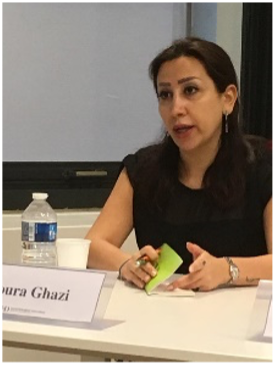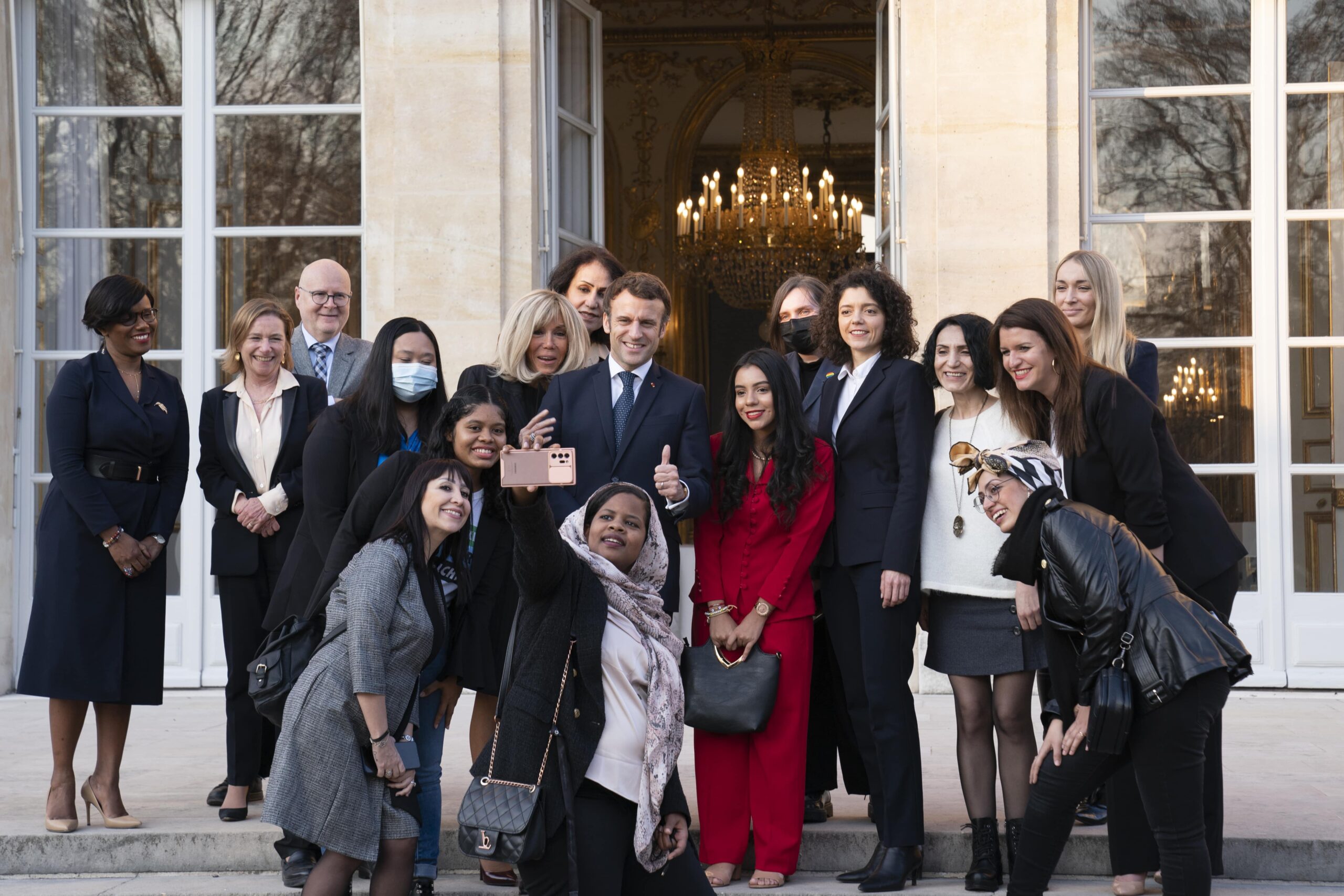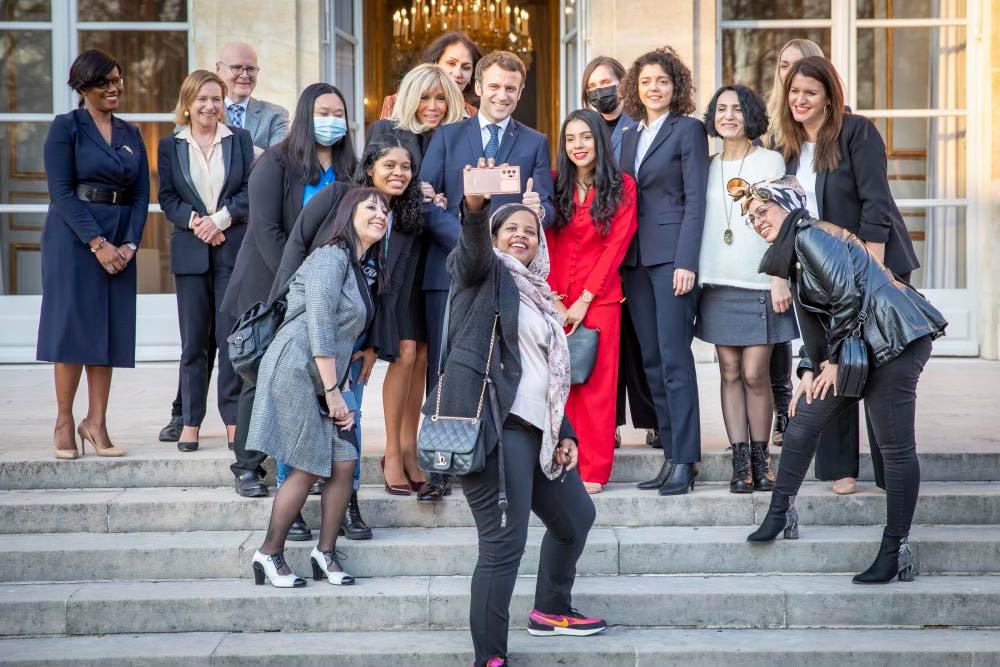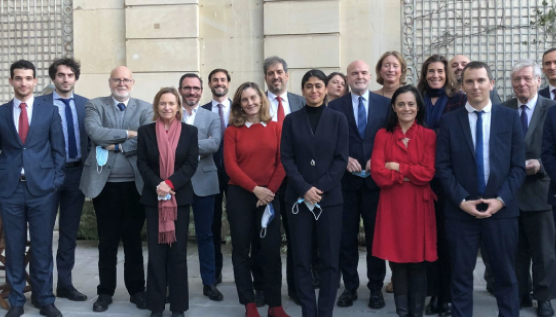
Description
Noura Ghazi has been a Syrian human rights lawyer and activist since 2000, defending political prisoners since 2004. She founded the NoPhotoZone organization in 2018 to pass on the memory of her husband Bassel Khartabil Safadi, a prominent Syrian-Palestinian activist who was detained by the Syrian regime in 2012 and executed in 2015. NoPhotoZone is a French NGO that provides legal and psychosocial support and advocacy for detainees, the disappeared and their families in Syria, Lebanon and Turkey. It has been advocating internationally for the rights of detainees and the missing in Syria since 2014. She has won numerous international awards, notably from Amnesty International, for the value of her struggle.
"The Syrian refugee crisis will end the day Bashar al-Assad's regime falls."
Interview with Noura Ghazi - March 15, 2024
Could you please introduce yourself?
I'm Noura Ghazi, a Syrian laureate from the first class of the Marianne Initiative. I have been an activist, campaigner and expert in the defense of human rights for over 20 years as a lawyer. I fight against arbitrary detentions and forced disappearances in Syria, but also against torture and the death penalty.
Can you describe your commitment as Human Rights Defender?
Since 2004, I have dedicated my life to defending the rights of political prisoners. In 2011, the Syrian Revolution exacerbated the problems of arbitrary detentions and enforced disappearances during demonstrations. My husband, Bassel Khartabil Safadi, a Syrian-Palestinian activist, was imprisoned by the Syrian regime in 2012 and executed in 2015. We married while he was imprisoned, earning me the title of "Bride of the Revolution". In 2018, I was forced to leave Syria for Lebanon. I founded NoPhotoZone, a French NGO providing support to detainees, the disappeared and the forcibly displaced in Syria, Lebanon and Turkey.
Why did you decide to get involved in human rights?
I was 5 years old when I first experienced a human rights violation. My father had been arbitrarily arrested in Syria, where he was detained and then disappeared. Although I didn't know him very well, I still carry deep scars from this event. That's why, when I was 13 and dreaming of becoming an actress, I decided to become a human rights defender.
How did the Marianne Initiative help you make your project a reality?
The Marianne Initiative was an opportunity to share our experiences with other women human rights defenders. In my opinion, it's important to defend them on an international scale. Human rights violations take place everywhere, and anyone can be a victim. In that sense, the Initiative was a great help to me.
Meeting the other prizewinners also drew my attention to other commitments, such as environmental issues. These are important issues to take an interest in in our daily lives.
These intra-promotional exchanges enabled me to learn more about situations in other countries. Above all, it was meeting these women defending human rights that gave me the most, both personally and professionally.
What activities were most useful to you during the program?
All were useful during the program. I remember finding the course on international NGOs particularly interesting, given my background. I was also impressed by the visits, especially to the French National Assembly. I enjoyed meeting members of the French government. These meetings, visits and events enabled me to shed light on the cause to which I'm committed, but also on the situation in Syria. The networking from which I benefited enabled me to be identified in France as a laureate of the Marianne Initiative and to be recognized today in the community of human rights defenders.
What's more, although the 2022 program has come to an end, that's not the case with my history with the Marianne Initiative. We're still committed to the Initiative, whether through the links we've created with the other winners in my class, the new winners, or the teams I'm still in contact with. I continue to go to major events, and this gives me the opportunity to see the Initiative's prizewinners again.
My whole life changed with the Marianne Initiative. It enabled me to develop new relationships and create new friendships. I've kept in touch with Tatsiana and Nuray ( : the Belarusian and Turkish laureates of the class of 2022), with whom we continue to support each other.
What did you do at the end of the program?
At the end of the program, I decided to stay in France, given the threats I was facing in Syria. I applied for asylum and was assisted in my application by the Marianne Initiative teams. I would now like to apply for French citizenship.
As far as my commitment is concerned, together with Tatsiana and Nuray, I set up an association, "Voix des Prisonniers", dedicated to the rights of political prisoners and enforced disappearances. During the Marianne Initiative, I became very close to these prizewinners who were working on the same issues as me. At the end of the program, we jointly decided to build a project to continue our work. Our aim is to raise public awareness of the issues of torture, enforced disappearance and the control of dictators. Through our actions, we hope to reach not only the nationals of our home countries, but also French and European citizens. From now on, we plan to continue developing this association by working on our website, gaining visibility and seeking new funding.
What's more, I'm currently nominated for the Prix Liberté from the Normandy region, by young people from a French school.
Would you like to add anything?
Today is the anniversary of the start of the Syrian Revolution and of my husband's imprisonment. It's a very important and difficult day for me.
Do you have a question? Please contact us!
Contact


